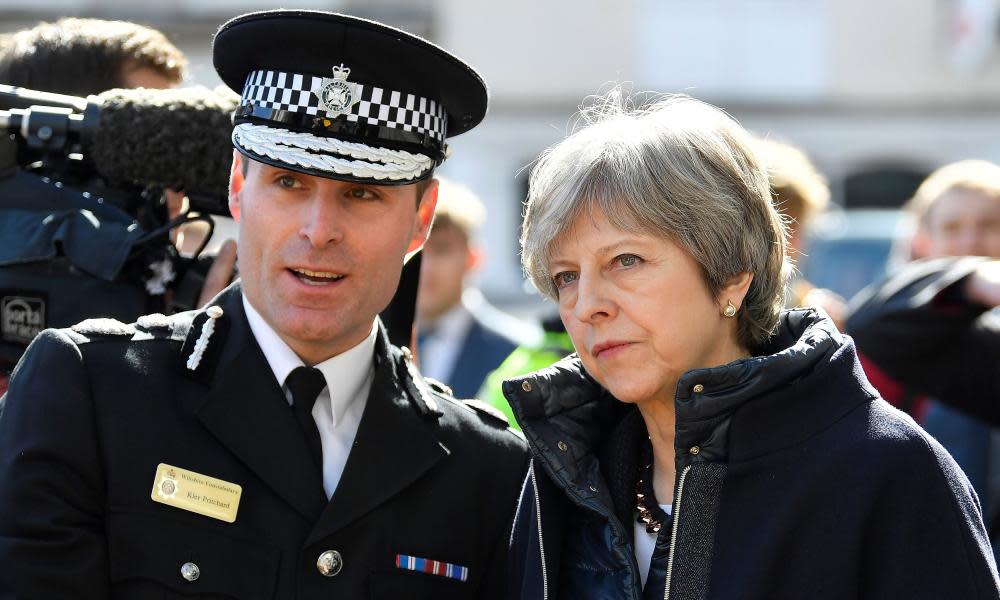Judge gives permission for blood samples to be taken from the Skripals

A judge has given doctors permission to take blood samples from the former Russian double agent Sergei Skripal and his daughter, Yulia, so that tests can be carried out by chemical weapons experts.
Mr Justice Williams made the ruling after a hearing in the court of protection, where issues relating to people who lack the mental capacity to make decisions are considered.
The Skripals are both in a coma in hospital after the nerve agent attack in Salisbury and therefore unable to give their consent to blood samples being taken or tested.
The judge, David Williams, who is based in the family division of the high court in London, announced his decision on Thursday after analysing the case at a private hearing earlier this week.
Giving his ruling, the judge said the Skripals remain in hospital under heavy sedation, are unable to communicate and that it was not possible to say when or to what extent either may regain mental capacity.
“The precise effect of their exposure on their long-term health remains unclear albeit medical tests indicate that their mental capacity might be compromised to an unknown and so far unascertained degree,” the judge said in his ruling.
The ruling came as it emerged that police in Salisbury realised they were dealing with a possible terrorism attack within hours of Sergei and Yulia Skripal becoming ill when the pair failed to respond to antidotes.
Wiltshire police got in contact with the counter-terrorism network on the night of the attempted murder, the force’s chief constable, Kier Pritchard, said on Thursday.
Pritchard said the police officer hospitalised following the attack, Det Sgt Nick Bailey, was improving each day but described what his wife and children were going through as “horror”.
He said the recovery process following the nerve agent attack would be prolonged. Careful decontamination would be needed before some areas of the city can be returned to the public.
Pritchard explained that initially police believed they were responding to a medical emergency when Skripal, 66, and Yulia, 33, were found ill on a bench in Salisbury on Sunday 4 March.
When it was realised on Sunday night that the antidotes that medical staff were using were not working, the force contacted the counter-terrorism network and on Monday morning a major incident was declared, he said.
On Bailey, Pritchard said: “Each day he is making great steps forward. He’s improving. It’s fantastic to see that improvement.”
He said Bailey was receiving occupational therapy and psychotherapy. “We’ve extended occupational health support to his wife, Sarah, and their children. They [the family] are solid and strong.”
Speaking to the Wiltshire police and crime panel at the Corn Exchange in Devizes, 25 miles north of Salisbury, Pritchard said the operation was still focused on gathering evidence and had not yet entered the recovery stage.
He said 80 police officers were guarding cordoned-off areas to ensure evidence could be gathered. Once this had been done, decontamination would take place so the cordoned-off areas were “fit to return to the public”. He added: “It may take days, weeks, who knows? … It will be a fairly slow inquiry.”
He continued: “Our role is to ensure we return the community, Salisbury, the UK, back to normality.”
Pritchard accepted that concerns had been raised by members of the public about the nature of the nerve agent and the possible long-term impact on the environment. He told the panel that footfall in some parts of Salisbury and takings in some shops were down by 90%.
If you were at the Mill or Zizzi restaurant in Salisbury city centre on Sunday 4 and Monday 5 March, you can share your experience with us by using our encrypted form.
Your responses will only be seen by the Guardian and we will treat them confidentially. Your stories will help our journalists have a more complete picture of these events and we will use some of them in our reporting.
He said he had met the bishop of Salisbury, the Right Rev Nicholas Holtam, who had expressed concern. Visitor numbers at Salisbury Cathedral are down this month by more than a third compared with the same time last year.
Jane Morgan, the cathedral’s director of communications and development, said: “These are provisional figures and cover the periods of disruption due to snow and ice, as well as the recent incident.
“The downturn hasn’t taken us by surprise. Similar falls have been seen by colleagues at cathedrals in London when there have been major incidents there. The message that we do need to get out there is that while a small part of the city has been affected, the city centre and the cathedral, which is at some distance from the sites under investigation, are both functioning normally.”
The bishop added: “Salisbury is an 800-year-old cathedral city, gathered around one of Europe’s greatest buildings, which exists to celebrate the life, death and resurrection of Jesus Christ. That life shows us that hatred and destruction do not have the last word. Love and life do.
“We are about to go through holy week to Easter. We welcome people of all faiths and none to come and celebrate with us.”

 Yahoo News
Yahoo News 
